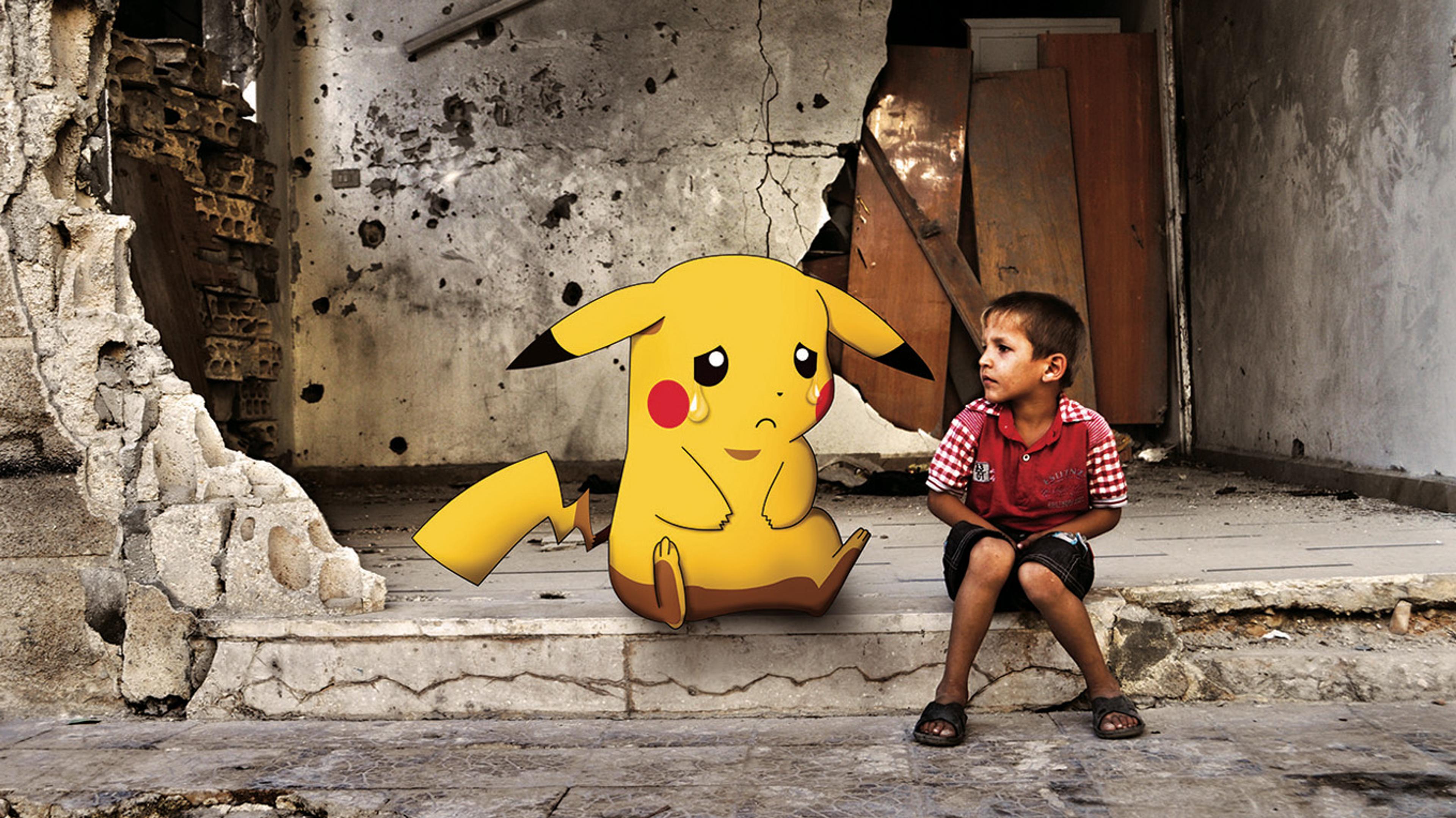Moustafa Jano
Every Person Has Lost Something

Every person has lost something, an exhibition featuring Moustafa Jano’s digital photographic montages from war-torn Syria and his deadly dangerous escape.
We have seen them over and over again in the media
Most of us have experiences that divide our lives into a before and an after: We had something – and we lost it: love, health, peace. For Moustafa Jano from Aleppo, a graphic designer with his own company and a degree from the art academy in Damascus, two hellish moments define the loss of his loving, peaceful family life: When the war broke out in Syria and the bombs began to fall on Aleppo – and the escape in an inflatable boat across the Mediterranean.
We have seen them over and over again in the media. Terrified or blank faces of passengers in the small rubber boats risking their lives to escape the terror of the ISIS. One of them is the graphic designer Moustafa Jano. His wife and three children, the youngest still in his mother’s womb when Moustafa crossed the Mediterranean, are still on the run in northern Iraq. 39-year-old Jano ended up in a refugee camp in Karlshamn where he shares a small room with two others. Here he works day and night, employing the power of photography induce emotion, provide insight and a commitment to end the war.
“All of us who flee the war do it for life. I would like these photographs to make people realise the horror we live in Syria. A horror and torment so great that it causes us to flee and abandon our homes, jobs and friends in the fight for survival...”
provoking images of tremendous frustration
His digital montages, comprising his own photographs and images published on the Internet available for free use, have gained a worldwide distribution. An example in these Pokémon times is the image of a crying Pikachu sitting next to a little boy in front a bombed house that until recently was someone’s home. The blurring of reality and dream, worlds colliding, provoking images of tremendous frustration, vulnerability and loss are central motifs in Jano’s work. Children are omnipresent in his images, representing a generation that was born into a war and whose sense of security has been torn to pieces.
Perhaps they are also symbols of the incurable despair and longing of those forced to flee their homes and break up their families, just like Jano. The often symbolic and, at times, surreal elements reflect the indescribable despair of seeing one’s homeland in ruins, and also serve as a reminder that dreams, security and longing are universal feelings that can be snatched away from all of us, says Pauline Benthede, Exhibition Manager at Fotografiska.
Moustafa Jano describes the journey across the sea as the closest he has been to death. It divides his life into two parts, before and after. The overcrowded rubber boat was taking on water and before a tourist boat came to the rescue, Jano asked himself just how he had ended up in the totally incomprehensible situation of being about to drown in the Mediterranean. Such experiences leave their mark.
The civil war in Syria has developed into one of the worst conflicts in modern times, a seemingly endless battle that fills the media and makes people fleeing from war appear as a normal state of affairs. Europe’s closest islands from the Turkish and North African coasts have taken on new meanings. We learn the names of Lesbos and Lampedusa and see piles of life jackets on the beaches. It could have been your life; a before and an after, defined by a war that took everything away from you…
Footnote: The image of the boy and Pikachi © Moustafa Jano. Background photo: WFP/Abeer Etefa.